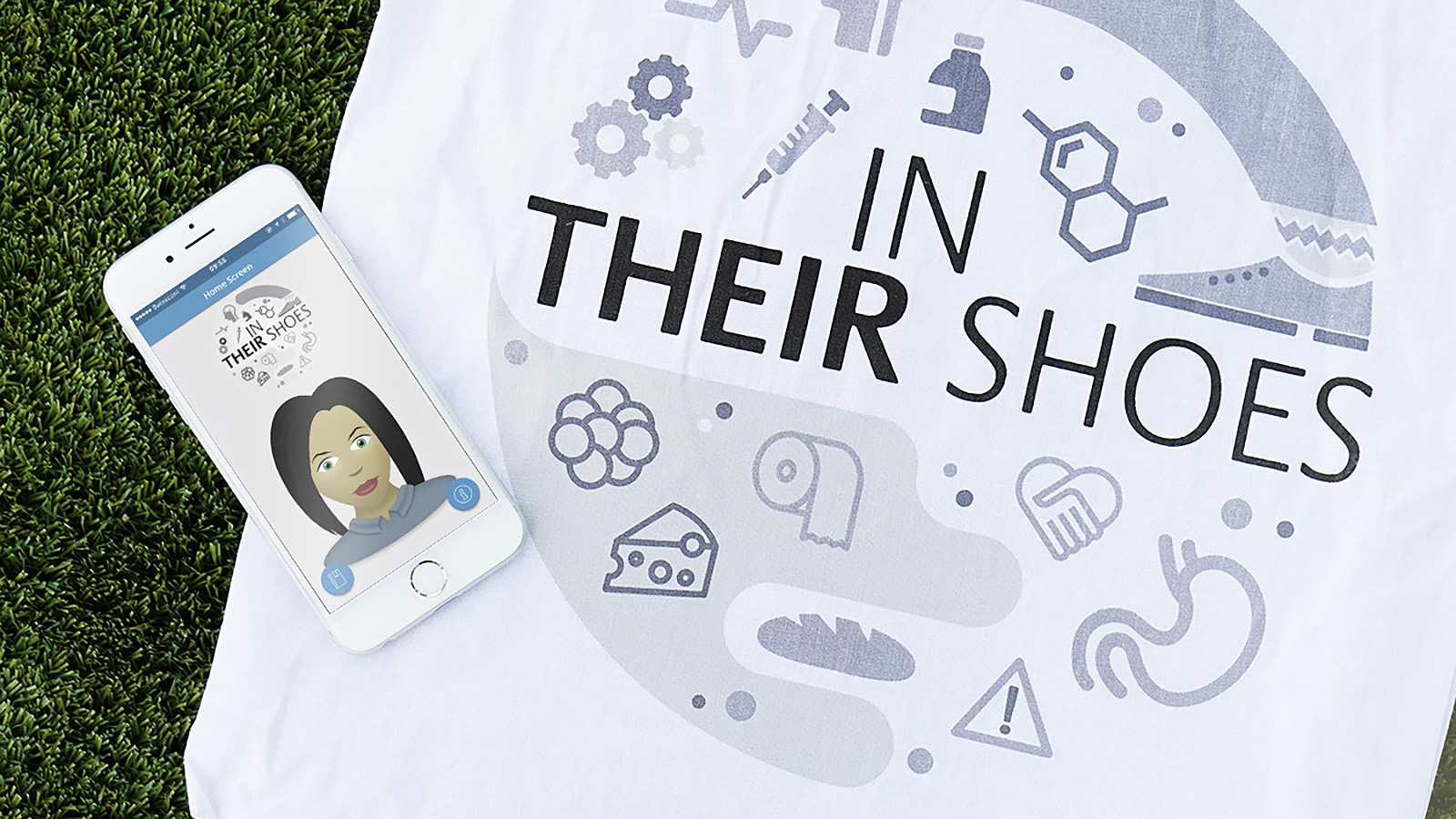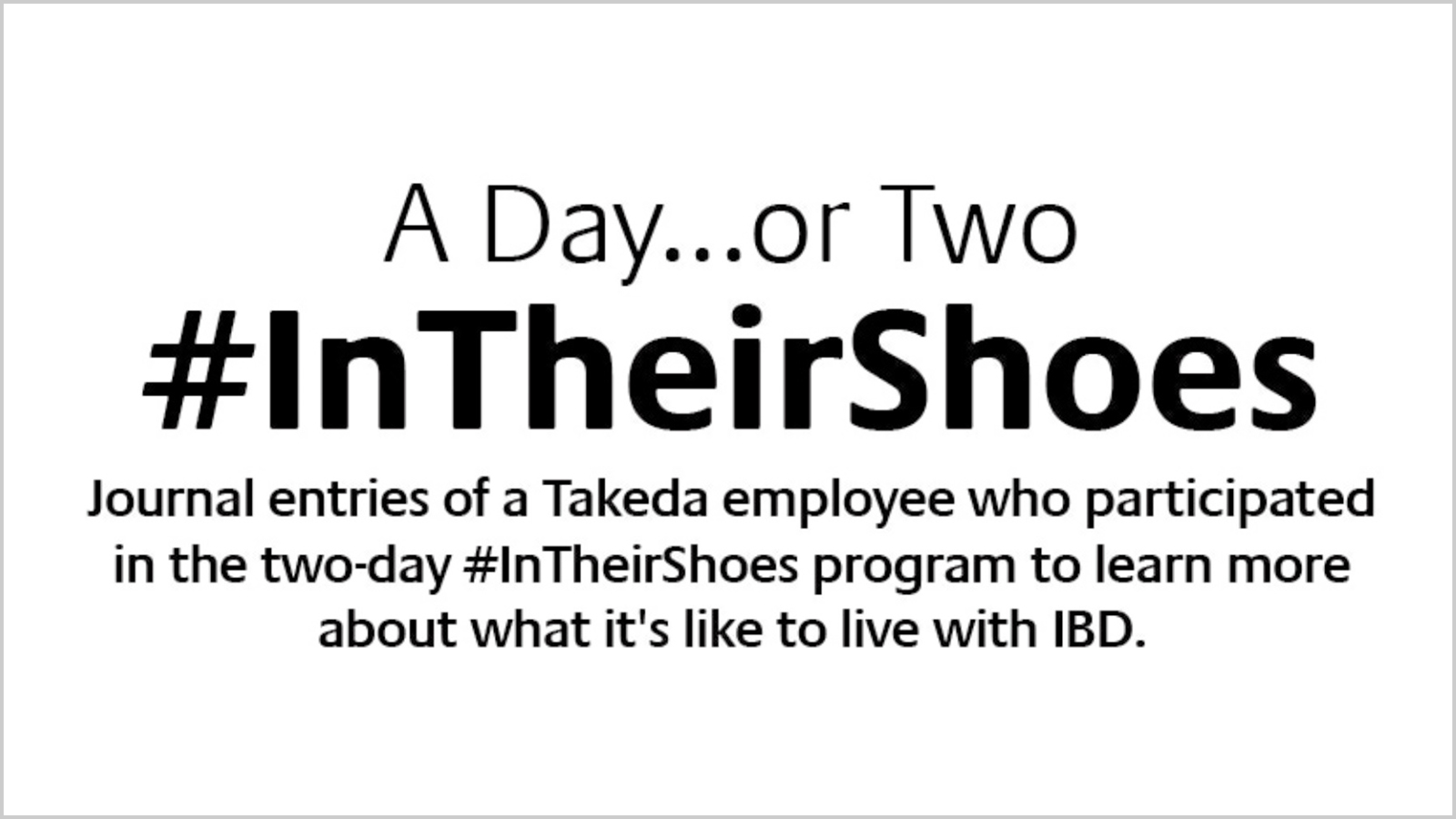
#InTheirShoes: What It’s Like to Be an IBD Patient – How We’ve Approached It
Imagine you’re in a meeting, about to present a project update when you’re suddenly struck with the need to go to the bathroom. This is exactly what Besey Teo “experienced” via a text she received on her smartphone on a Thursday afternoon as part of Day 2 of the #InTheirShoes simulation. She, along with 20 others, was part of a real-life simulation exercise at Takeda’s Singapore office. The activity was to better understand the implications of inflammatory bowel disease (IBD), what patients experience on a daily basis, and how to better target treatments.
For more than five million people worldwide, the simulated inconvenience Teo experienced isn’t an exercise; it’s the day-to-day reality of the typical patient with IBD. Many people with IBD live with chronic fatigue, nausea, and worst of all, excruciating, and paralyzing and unpredictable stomach pain on a daily basis. Living with IBD impacts physical and emotional well-being, and as a result, affects social interactions, family life, and work or studies.
“We always hear about putting patients at the center,” said Teo. “It was a great way for Takeda colleagues to truly understand what patients go through, what our daily work contributes to, and most importantly, to take pride in the work we’ve done at Takeda.”
Pilot started in Takeda Zurich Office

“For employees and stakeholders, it’s not always easy to fully understand how a disease like IBD affects the lives and daily activities of patients,” Liechti explains.
Using a mobile phone-based system, members of the experience delivery team send SMS text messages to participants’ phones, leading them through the typical experiences of an IBD patient. While this simulation could never replicate the pain and real impacts associated with IBD, typically these texts would include reminders of when the patient might feel pain or their experiences with urges, dietary restrictions, or other time-relevant situations. As in a real patient’s life, prompt responses to these messages are crucial in this simulation. Failure to do so could lead to an uncomfortable “incident” within the simulation, in order to better demonstrate the experience of IBD sufferers.
“The most challenging part of the experience was handling the business interruptions. I constantly felt embarrassed about leaving a meeting or discussion in a very hectic way,” said one participant in Zurich. “I could never really plan ahead, not even for the next hour, because I was living in this constant uncertainty.”

Click for more: Journal entries of a participant in the #InTheirShoes program
Program expanded

“This experience really gave me a different sense of how disruptive the disease can be, and how strong you must be to still live a normal life,” said Edward Feijoo from Takeda Canada. “I nearly missed my daughter’s big goal in her soccer game because I was too concerned with finding a bathroom. I had to run to find a bathroom. I made it right on time. I felt that it wasn’t just a victory for my daughter, but a victory that I won over the disease.”
Liechti is excited to see others embracing this immersive program because, though one will never truly understand how it feels to live with IBD day in and day out, at least she and her colleagues have a better sense of the impact. “Ultimately, when we understand the patient’s condition, it makes our work more meaningful, …and if this enables us to find solutions to challenges patients face every day, then that’s even better. That’s what we’re hoping to achieve in the long run, both internally and externally.”
For broader audiences
Beyond the initially focused internal audience of Takeda, the team has continued to expand the program across broader audiences (HCPs, journalists, and institutions) in the Europe and Canada region. In each country where the program has been initiated, patient associations were involved.
Most importantly, the positive buzz around #InTheirShoes has led to its inclusion in product launch programs, national conferences, annual meetings, and other internal activities across Takeda. The initiative was awarded in the Internal Communications and Employee Engagement category during the PRWeek Awards 2016 and received the “highly commended” accolade. #InTheirShoes also has led to other recent programs. Inspired by the activity and Takeda’s commitment, an employee came forward and spoke about her own experiences with IBD when traveling. This led to the launch of a new initiative called #FlyWithIBD, calling on airlines to provide better experiences by offering IBD-friendly meals on long-haul flights.
References:
1. Fumery, M et al. Epidemiology, risk factors, and factors associated with disabling course in inflammatory bowel disease. Rev Prat. 2014 Nov;64(9):1210-5.
2. Living with Crohn’s and Colitis. Crohn’s & Colitis Foundation of America Web site. http://www.ccfa.org/living-with-crohns-colitis. Accessed May 6, 2016.